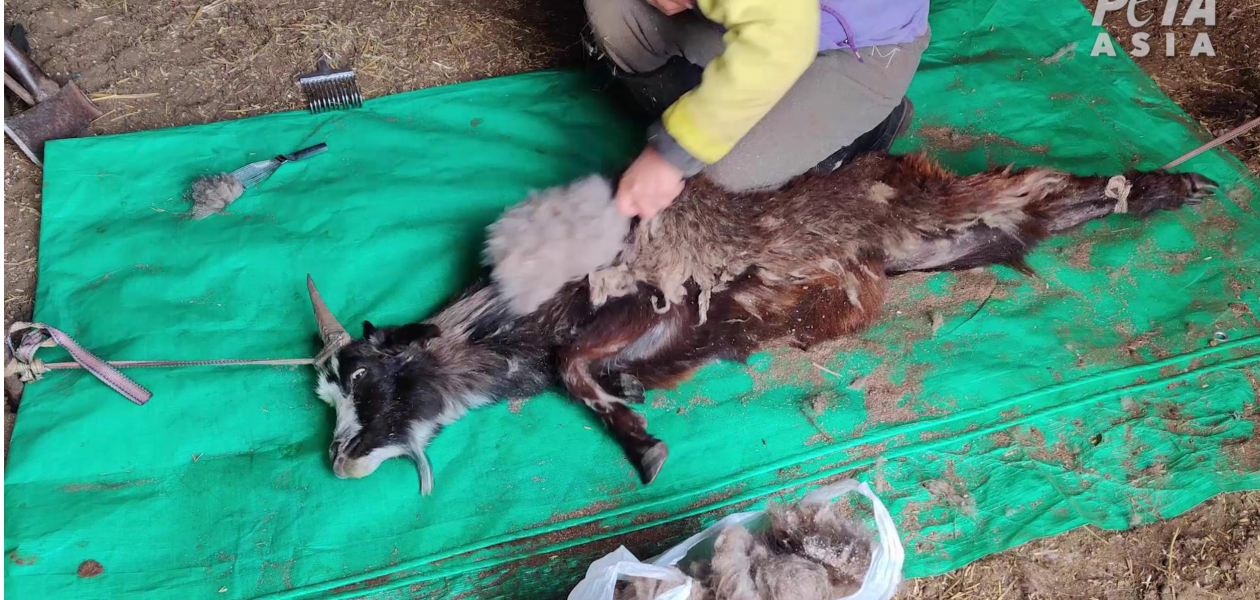
PETA infiltrated Mongolia to expose lies about "sustainable" and "responsible" cashmere, and the results reveal that, regardless of the type of labeling used, all cashmere comes from goats whose hair has been harvested from them. violently robbed before being shot dead.
Investigators discovered the following:
- Workers restrained the goats by their legs and horns and pulled out their hair, while the animals screamed in pain and fear.
- A shepherd used an unsterilized knife to cut open the goats' scrotums and tore off the kids' testicles with his bare hands and without pain relief.
- Pieces of animal skin were torn off along with the cashmere.
- The goats were left to suffer bleeding wounds on their own.
- There were several dead animals at the site, including a goat found dead the day after the animal was seen sick or injured limping around an enclosure, and children who likely died from the extreme cold and hunger.
Combing is a painful and prolonged process Goats screamed as workers tied them up by their legs and pulled hairs from their sensitive skin with sharp metal combs – a process
terrifying which usually takes an hour per goat. Hand combing is only done to make money, as cashmere goats would naturally shed their coats.
The kids screamed as they were castrated without pain relief, while a worker cut their scrotums with an unsterilized knife and ripped out their testicles with his bare hands. A goat suffered a bloody wound while combing, and an investigator found pieces of cashmere with skin on it. Another goat was seen with a bleeding penis. An investigator found a goat that appeared sick or injured while limping in an enclosure. The animal was found dead the next day. And the children, like many others, died during the harsh Mongolian winter. A contact with a herding family also told PETA investigators that small goats die from being trampled by larger ones as they rush for shelter at night, when it can get cold. as cold as minus 22 degrees Fahrenheit.
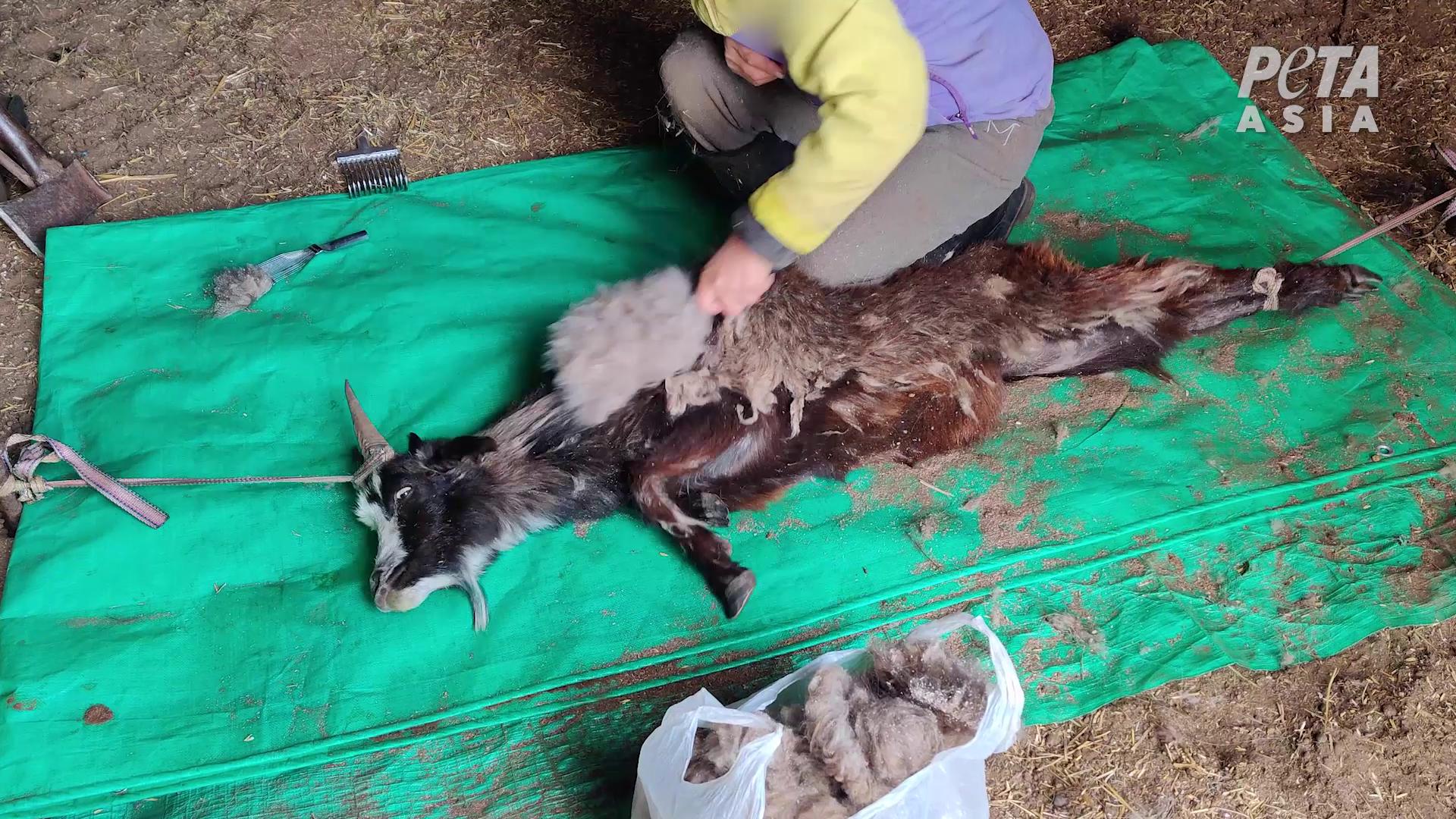
What consumers may not realize is that the cashmere industry is a slaughter industry – workers kill goats when they are no longer considered productive enough for this trade. Investigators visited slaughterhouses, where they documented workers dragging cashmere goats to the slaughter area, hitting them in the head with a hammer, and cutting their throats. The workers killed them at the sight of other goats. Afterward, some goats continued to move for more than four agonizing minutes after having their throats slit, before finally dying.
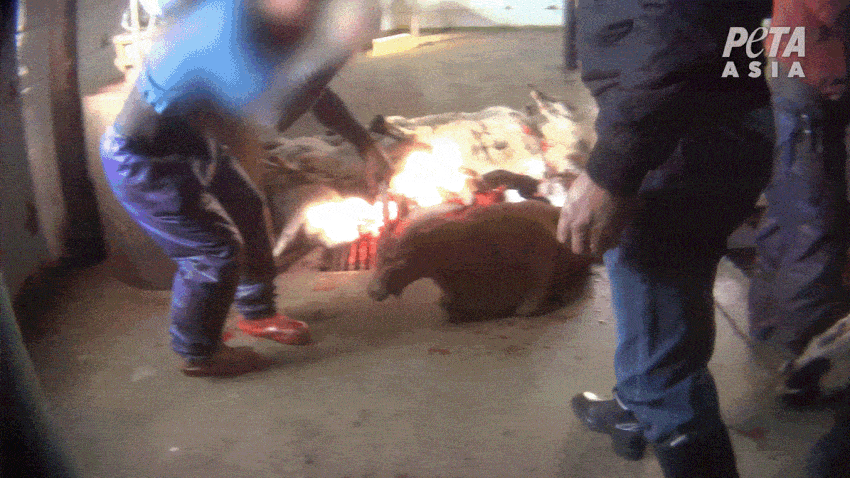
Following PETA's first investigation into the cashmere industry , clothing companies claimed they would follow and support certain animal welfare "standards", including signing up to the Sustainable Fiber Alliance (SFA), an organization that certifies two of the cashmere operations seen in PETA's most recent images. Many major brands have been hiding behind this false certification since 2018, claiming to care about the health and well-being of all animals used in its supply chain. But the reality is that the animal skin industries will never be free of exploitation and endemic cruelty, no matter what standards are adopted. Subscribing to “standards” instead of eliminating animal-derived materials fails animals and perpetuates their suffering.
For example, the SFA Code of Practice does the following:
- It recommends that combing be used to collect cashmere, despite the negative welfare effects associated with it.
- It does not require pain relief for castration or injuries that occur during combing.
- It considers treating animals “humanely” before slaughter to be a recommendation, not a requirement.
- It does not require goats to be stunned before slaughter, and it allows blunt trauma to be used to kill goats.
Producers are not even required to follow all the guidelines set out in the codes of practice in order to be certified by the SFA.
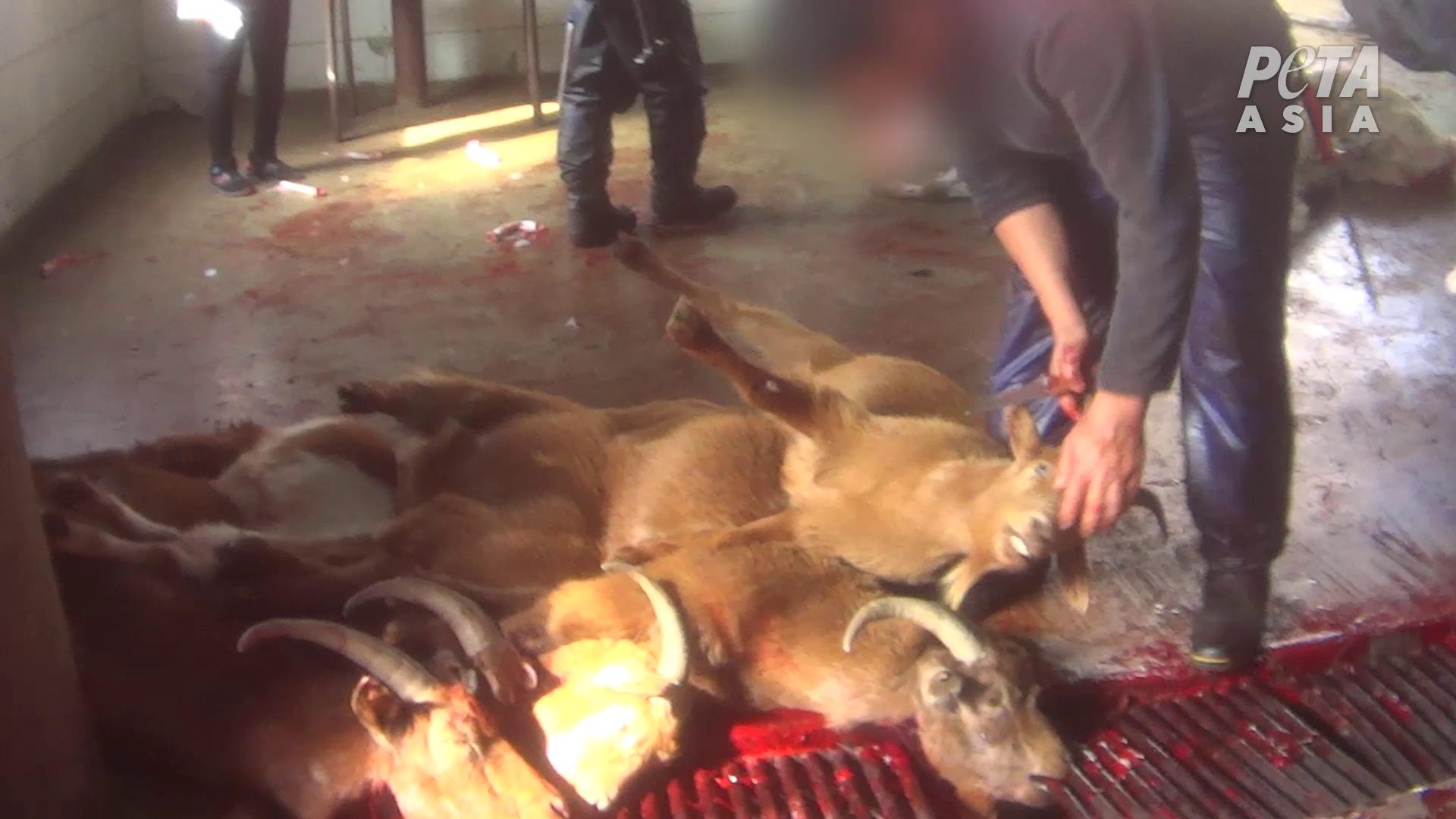
Cashmere production devastates the environment
Goats must consume more than 10 percent of their body weight in roughage each day, and they often eat plants down to the root. About 80% of the recent decline in grassland vegetation is attributable to the explosion of populations of goats and other ruminants in Mongolia, and the United Nations Development Program has found that 90% of Mongolia is land dry and vulnerable areas which are increasingly threatened by desertification.
Goats are sensitive and intelligent animals that form strong relationships with their peers. These qualities mean nothing to the global cashmere industry, which was built on their misery.
A 10-month PETA Asia investigation has shattered the violent industry's marketing claims by revealing widespread abuse on Mongolia's cashmere farms. Goats were seen screaming as workers tied their legs and pulled out their hair with sharp metal combs, an excruciating process that each goat is forced to endure for about an hour. Two of the structures were certified by the Sustainable Fiber Alliance (SFA), clearly demonstrating once again that industry standards are just marketing strategies.
When the goats are no longer productive enough for this trade, they are sent to the slaughterhouse where employees hit them on the head with a hammer and slit their throats in front of their terrified peers .
It's difficult to watch PETA Asia's latest footage that shows rampant cruelty toward goats in the cashmere industry, but what investigators saw was damning.
SFA ethics advise combing to collect cashmere despite the trauma and injuries it causes. It does not require painkillers for castration or combing injuries, or that goats be stunned before slaughter, and failing to meet these paltry guidelines does not prevent "certification." These standards are designed to protect cruelty and exploitation, not animals.
This survey showed it once again: “vegan” is the only certification that guarantees that no animal has suffered!
PETA opposes industry labeling schemes by persuading consumers to opt for vegan clothing, pressuring retailers and fashion designers to offer more animal-friendly products, and facilitating access to such products in-store and online. ASOS, which sells more than 850 brands as well as its own clothing and accessories brand, banned cashmere from its platform after PETA UK contacted them. Dozens of other brands have also banned cashmere after being informed by PETA entities, and now we're turning up the heat for companies like Burberry to join that list!
Goats deserve our respect and compassion, and your support will help us promote a cruelty-free lifestyle and end industries that treat sentient animals as commodities.
Sources:
- PETA France & PETA Asia
Posted on 2023-11-21 15:46





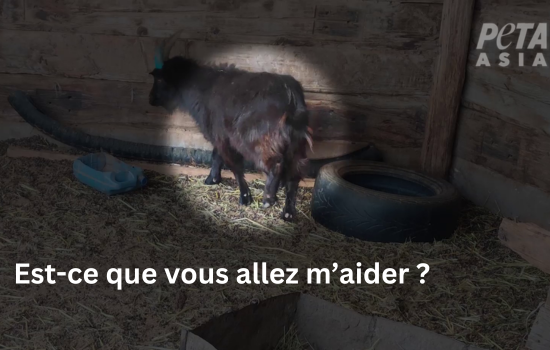
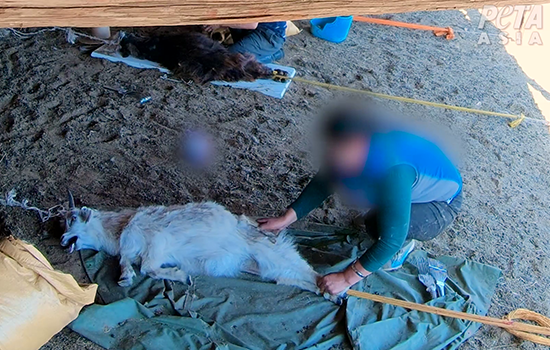



Comments